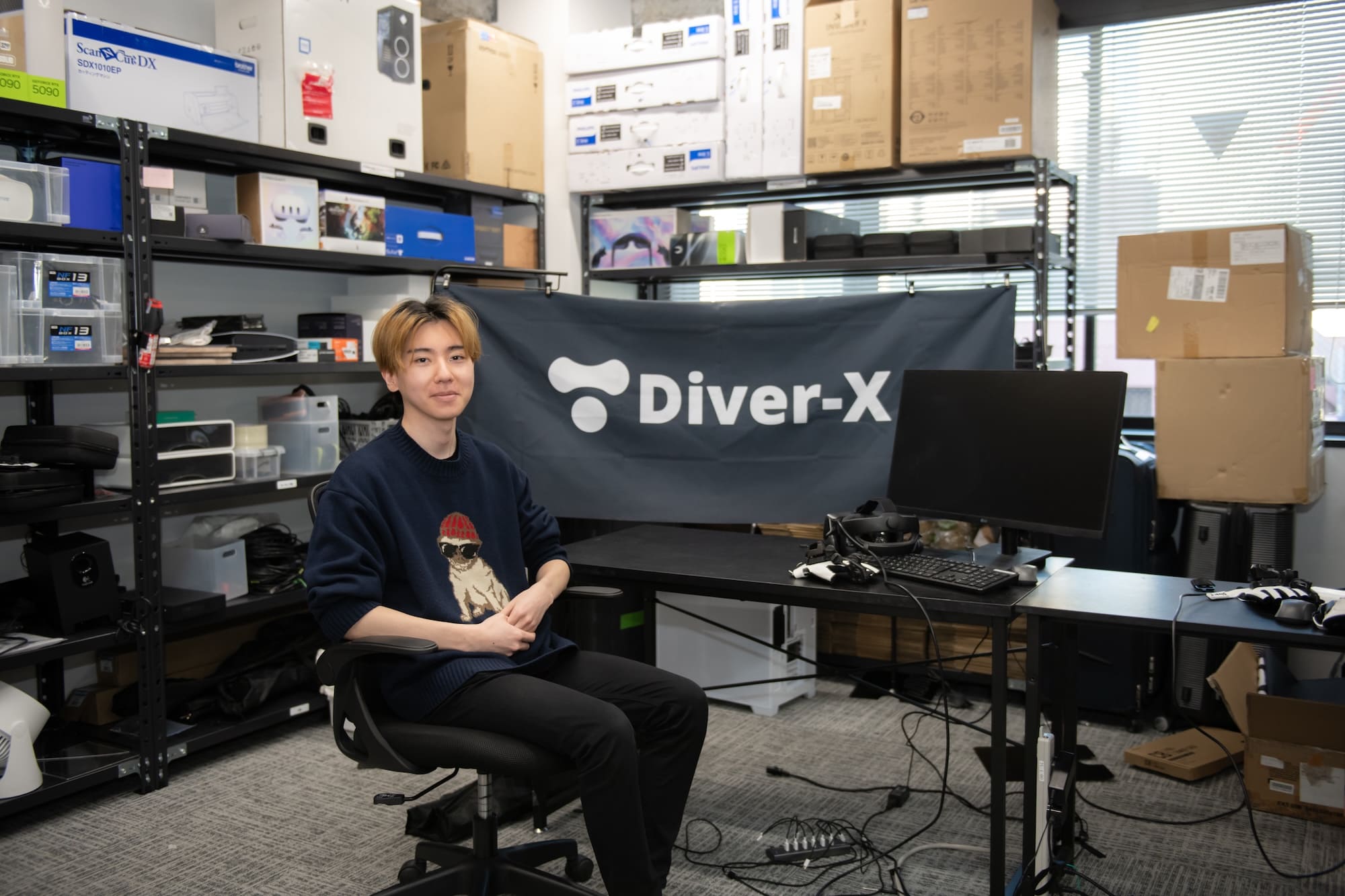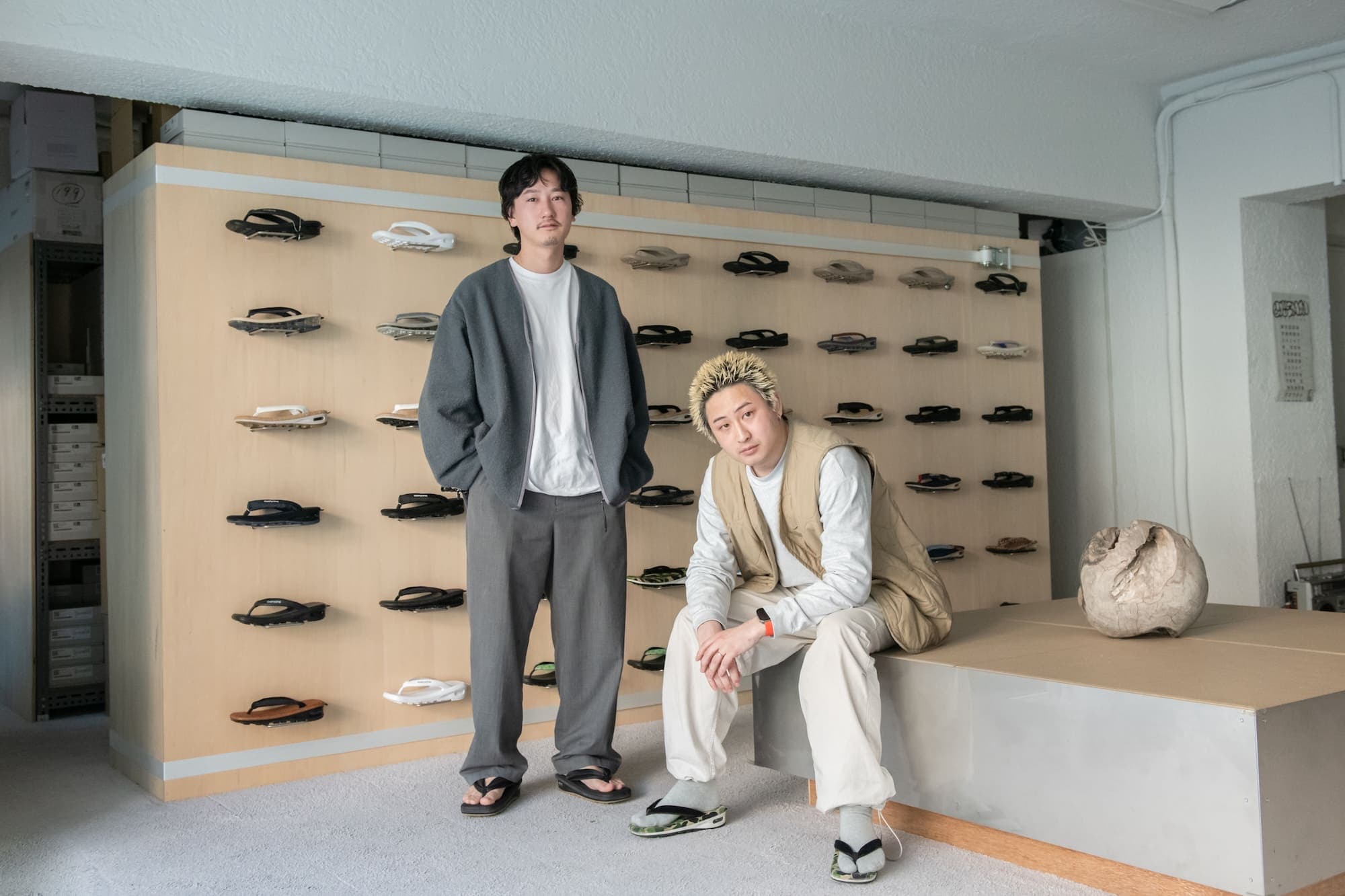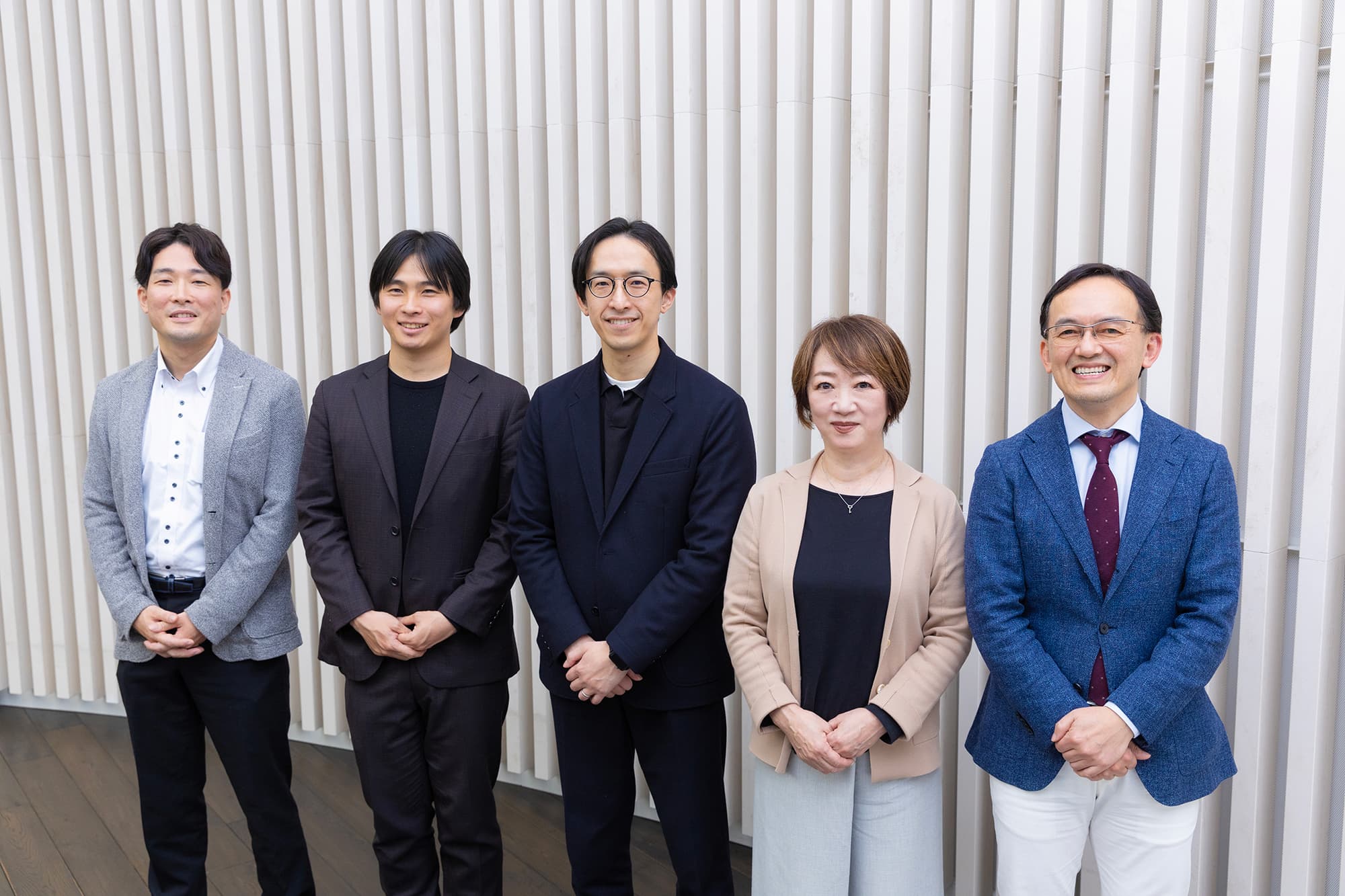【中編】Skype創始者、ニクラス氏に聞くスタートアップとグローバル動向

文:鈴木貴視 翻訳:Luke Baker 写真:依田純子
Skypeを創業し、投資家としても活躍するニクラス氏。スタートアップの先駆者が明かす、成功に辿り着くための失敗と勇気。
Atmico共同創業者兼CEOの二クラス・ゼンストローム氏と、IT分野のベンチャー投資などを手掛けるリクルートテクノロジーインスティテュートの岡本彰彦による対談企画。2回目のセッションでは、投資家の立場から唱える"起業家精神"や、今話題のあの日本のサービスについて。更には、二クラス氏が起業家時代に遡り、『Skype』誕生当時の心境を語る。
Niklas Zennström, co-founder and CEO of Atomico, and Akihiko Okamoto of IT venture firm Recruit Technology Institute came together for a special one-on-one interview project. In this second session they cover the "entrepreneurial spirit" from the perspective of investors as well as some of the hottest services in Japan now. Niklas also looks back at his own days as an entrepreneur as he speaks of his mindset in the early days of Skype.
岡本彰彦(以下・岡本) 起業家やスタートアップにとって資金調達も大事ですが、その他の部分では何が最も重要だと思いますか?
Akihiko Okamoto (Okamoto): Raising funds is very important for entrepreneurs and startups, but what else do you think is most important for them?
ニクラス・ゼンストローム(以下・ニクラス) この10年で、10億規模の新興企業が134社も登場しました。つまり、平均で1年に13社が大成功を手にしているということになります。大成功した起業家は、資金調達の困難というのはないですが、起業家たちは投資家から違う形の支援を求めます。
Niklas Zennström (Niklas): Over the past 10 years we've seen 134 billion-dollar startups appear. This means that on average 13 companies per year are very successful. Entrepreneurs who succeed like this won't have any difficulties getting funding, but they are also looking for a different type of support from investors.
岡本 Atmicoでは、どんな支援を行っているのでしょうか?
Okamoto: What kind of support do you provide at Atomico?
ニクラス 例えば、グローバル展開や国際的なスケーリング(事業拡大)などの支援を提供しています。我々は、欧州と米国をはじめ、日本、中国、韓国、中南米、トルコなど世界各地の主要市場にマーケット導入のサポートを行うスタッフがいます。そこで、新興企業のマーケット・コミュニケーションと採用のサポートも行っているのです。つまり、資金面だけではなくて、追加価値も与えるということが重要だと思っています。
Niklas: For example, we provide support with globalization or international scaling. We have a staff that provides support for entering major global markets all over the world like Europe, America, Japan, China, Korea, Latin America, and Turkey. We also help startups with market communication and hiring. I think it's important to provide not only funding, but also added value.

岡本 もちろん、日本のスタートアップもシリコンバレー以外の収益構造のエコシステムでグローバル化するチャンスはありますよね。日本のスタートアップはどういったチャンスを狙うべきだと思われますか? また、絶好のチャンスに向けてどういう準備をすればいいのでしょうか?
Okamoto: Of course Japanese startups also have the chance to go global in ecosystems outside of Silicon Valley. What sort of opportunities do you think Japanese startups should aim for? What preparations should they make for these opportunities?
ニクラス 日本はとても強くて大きい市場だと思います。特に、スマートフォンによる収益化がめざましい。ユーザー一人当たりの収益化率は、欧州やアメリカの2倍。そのことから分かるように、日本市場だけで成功するのも良いですが、逆にそれが障害にもなり得ます。日本のスタートアップにとって次の1歩は、グローバルへと展開する意識を持つことだと思います。
Niklas: Japan is a very large and strong market. The monetization in smart phones here is especially amazing. The monetization rate per user is twice that of American and Europe. This of course makes it seem like succeeding in the Japanese market might be enough, but this can actually turn into a hindrance. The next step for Japanese start-ups is to start thinking of going global.
岡本 ここ最近、さまざまな企業が意識していることのひとつだと思います。
Okamoto: I think this is one thing that has been on the minds of many companies here have recently.
早い段階からグローバル展開を考えなければならない
Thinking of going global as early as possible
ニクラス 例えば、リクルートも今、グローバル・ビジネス企業へ変わろうとしていますね。ただ、スタートアップは自分たちの事業をどうやってグローバル化できるのかということを、もっと早い段階から考えなければならないと思います。言葉の壁や異文化の理解が課題となりますね。日本のテクノロジー系企業の設立者や起業家には、自分のチームに多数の言語を使いこなせる人や異国からの人を加えること、そして、早い段階からグローバルへの展開を考えることをお勧めします。
Niklas: Recruit is also now trying to change into a global business, for example. But, I think that startups need to start thinking about how they can globalize their business even earlier. The language barrier and understanding of other cultures are issues that need to be solved. My recommendation for the Japanese startups or the founders of Japanese tech companies is to add people from other countries or who can speak other languages to their teams, and then to expand globally as soon as possible.
岡本 本当にその通りですね。日本という市場はとても大きいので、ほとんどの日本人起業家は、初期の目標として日本で成功を手にすることだけに集中しています。でも、そうこうしているうちに、グローバル化する絶好のチャンスを逃してしまう。もしグローバルなステージで成功する可能性があれば、日本市場を優先するのではなくて勇気を持って挑戦するべきです。
Okamoto: What you say is very true. Japan is a very large market, so most entrepreneurs here focus on succeeding in Japan as their first goal. But, while they are doing this they might miss the best window of opportunity to go global. If there's a chance that they can succeed globally, they should be brave and take the challenge rather than prioritize the Japanese market.
ニクラス そうですね。でも、早すぎると上手くいかないので、ちょうどいいタイミングを見出すことも大切です。製品には製品市場が必要ですし、日本の市場である程度の成長過程を設けるのも必要ですから。
Niklas: That's right. But, if it's too early then things won't go well, so it's important to determine the right timing. Products need a product market, so they need to have undergone a certain amount of growth in the Japanese market.
岡本 今思い浮かぶもので、それに該当するサービスはありますか?
Okamoto: Are there any services like this that you can think of now?
ニクラス そのひとつの良い例は『SmartNews』です。日本で弾みがついてとても良い成長をみせていますし、最近、彼らのサービスをローカライズしてアメリカでローンチしました。実は、アメリカでは今、ニュースカテゴリーにおいてNo.1アプリになっていますよ。
Niklas: One good example is SmartNews. They have traction in Japan and have shown good growth, and recently they localized their service and launched it in America. They're actually the number one app in the new category in America now.
岡本 『SmartNews』は、国際的な才能を持つ人材を採用することや、グローバル化するために絶好のタイミングを計った良い例ということですね?
Okamoto: So you would say that SmartNews is a good example of hiring personnel with international capabilities and finding the right timing for going global?
ニクラス その通りです。彼らのチームも最初から国際的でした。設立者の1人はドイツ育ちですが、世界的な展望をずっと持っていましたから。そして彼は、エンジニアでもありました。エンジニアや製品中心の人が創立した企業は、ビジネスマンが創立した企業より成功率が高いと思います。サービスにおいても、ニュースのアグリゲート・サーバー(自動で最新のニュースを集約するサーバー)を作るための知能技術の使い方も面白かったですね。でもやっぱり最も興味深かったのは、早い段階で世界的な企業になろうと決めていたことです。
Niklas: That's right. Their team was also international from the beginning. One of the founders was raised in Germany and always had international goals. He was also an engineer. Companies founded by engineers or product-oriented people are more likely to succeed than companies founded by businessmen. Another thing I found interesting about SmartNews was how they used intelligent technology to make aggregate news servers. But, what I found most interesting of all was definitely how they decided they were going to be an international company from a very early stage.

失敗する可能性と直面できる「勇気」も必要
You need the courage to face the possibility that you will fail
岡本 少し話の内容を変えたいと思います。以前のセミナーのコメントで「偉大な起業家は勇気を持たなければならない」とおっしゃっていましたが、その「勇気」についてもう少し詳しく教えていただけますか?
Okamoto: I'd like to switch gears to another topic now. Earlier in the seminar you said that all great entrepreneurs must be brave. Could you explain in a more detail what you meant by "brave"?
ニクラス 偉大な起業家というのは偉大な会社を作ります。彼らは世に出て現状を打破しようとしています。大企業や長年君臨する経営者を覆そうとしています。大きな資金と大きなチームがない状態でも、それを成功させられるのは「勇気」です。と同時に、失敗する可能性と直面できる「勇気」も必要です。多くの企業は成功できないですから。それら全部の意味で「勇気」はとても大事だと思います。
Niklas. Great entrepreneurs build great businesses. They go out into the world and try to disrupt the status quo. They are trying to overthrow the big corporations or legacy incumbents. What allows them to be successful at this even without a big budget or big team is bravery. At the same time, they also need to be brave in order to face the possibility that they will fail, because most businesses do not succeed. Being brave in all of those ways is very important.岡本 あなたがおっしゃる「勇気」とは、不安や懸念もあって、失敗する可能性があっても諦めないという決心ですね。失敗しても次のチャレンジに移る、そういった勇気でもあるのでしょうか?
Okamoto: So the bravery you're speaking of is the determination to not give up even if there is anxiety or concern or a possibility of failure. The bravery to move on to the next challenge even if you do fail.
ニクラス もし会社を設立して成功しなくても、それは「失敗」ではなくて「経験」として受け止めるべきだと思います。その経験から何かを学ぶべきです。現代社会では、成功できなかった起業家は失敗者として見られがちだと思います。でも、もし投資家から資金をもらって何も結果は出せませんでした、となっても私は失敗だとは思いません。何かを学べるチャンスがあれば、それは成功なのですから。
Niklas: Even if you make a company and it isn't successful, you shouldn't think of it as a failure but rather as an experience. You need to learn something from that experience. In modern society I think we tend to view entrepreneurs who were not successful as failures. But, even if you got funding from investors and weren't able to produce any results, I still don't think of that as a failure. It will always be a success as long as there was the chance to learn something.
岡本 ご自身もそのような経験が?
Okamoto: Do you have any experiences like this?
ニクラス 私の場合は『Skype』を立ち上げる前に、『Joltid』と『Kazaa』の2社を設立しましたが成功しなかった。でも、2回とも必ず何かを学びました。その2つの失敗がなかったら、おそらく『Skype』でも成功していなかったと思います。
Niklas: Before I started Skype, I founded two other companies using P2P software, Kazaa and Joltid, that weren't successful. But, I learned something both times. Without those two failures, I don't think that Skype would have been successful.
岡本 確かに、あなたは昔『Skype』を立ち上げようとした際「投資家から資金を調達するのは困難でした」と言っていましたね。でも、やはり諦めたりはしなかったんですね。
Okamoto: I remember you saying that when you started Skype you had difficulty getting funding from investors. But, you still didn't give up.

ニクラス 諦めずにいるのも大切ですね。私はとても粘り強いんです。みんなに『Skype』で成功を手にするのを見せたかったですから。
Niklas: Not giving up is another important thing. I was very stubborn. I wanted to show everyone that Skype could be a success.
岡本 その『Skype』では「第3の失敗」になる可能性については考えていなかったのですね。そう信じられる源は何だったでしょうか? なぜ『Skype』の時は、諦める必要はないと思えたのでしょうか?
Okamoto: So you never thought that Skype could become your third failure. Where did you get this confidence? What made you think that you shouldn't give up on Skype?
ニクラス 私は当時、人々に無料で通話できるサービスを提供できれば、たくさんの人が必ず使う、という自信がありました。国際電話の料金は高いですから。技術に関しても前の2つの会社で磨いたものを使っていましたし、ちょうどその頃に多くの人がダイヤルアップ接続からブロードバンドへ切り替えていたので、絶好のタイミングだとも思ったんです。それらの理由から、必ず成功すると確信したんです。
Niklas: I knew back then that if we could provide a service that would let people talk on the phone for free that they would use it, because international calls are very expensive. We were also using technology that had been perfected in my previous two companies, and I thought the timing was perfect since it was right around when lots of people were switching over from dial-up to broadband. This is why I was certain that Skype could succeed.
岡本 タイミングと成功率の高さ、ですね。
Okamoto: So it was the timing and a high probability of success.
ニクラス そうです。ただ、「次は投資会社を作ろう」と初めて思ったのも、資金があまり調達できなかったその頃でしたが(笑)。
Niklas: That's right. But, it was also back when I was having trouble getting funding that I thought that the next business I make would be an investment company (laughs).
プロフィール/敬称略
- 二クラス・ゼンストローム
- Niklas Zennström
-
Atmico共同創業者兼CEO。1966年、スウェーデン生まれ。スウェーデンのウプサラ大学にてビジネスおよび工学物理学/コンピューターサイエンスの理学修士号を取得。最終学年はミシガン大学に在籍。テクノロジーベンチャーキャピタル会社アトミコの共同創業者兼CEO、投資家。過去に『Skype』『Kazaa』『Joost』『Joltid』社など数々のテクノロジー企業を立ち上げる。2005年に「Skype」は31億ドルでeBayに買収され、その後はニクラスを含む投資家グループに再売却。2006年に、米タイム誌が選ぶ世界で最も影響力のある100人「タイム100」に選出。同年、アトミコを創業。以来、世界4大陸に50以上の企業に投資を行ってきた。2011年には、マイクロソフトが「Skype」を85億ドルで買収。2011年には英オックスフォード大学インターネット研究所より特別功労賞を受賞。バルト海の環境を改善し、社会起業家を応援する「Zennström Philanthropies」を創設。2012年に、日本拠点を開設。
Co-founder & CEO of Atomico. Niklas Zennström was born in Sweden in 1966. He obtained a master's degree in business, engineering physics, and computer science from Uppsala University. He spent his final year of college at the University of Michigan. Niklas is now an investor as well as the co-founder and CEO of Atomico, a technology venture capital firm. He is also the co-founder of several other technology companies such as Skype, Kazaa, Joost, and Joltid. Skype was purchased by eBay for $3.1 billion in 2005, but was later bought back by Niklas and a group of investors. In 2006, Time Magazine chose him for their Time 100 list of the 100 most influential people in the world. Niklas would then found Atomico the same year. Since then Atomico has invested in more than 50 companies on four continents. Microsoft would later purchase Skype for $8.5 billion. In 2011, Niklas received a Lifetime Achievement Award from Oxford University's Oxford Internet Institute. He works actively to improve the state of the Baltic Sea and has also founded Zennström Philanthropies, which supports social entrepreneurs. Niklas opened a Japanese base of operations in 2012.
- 岡本彰彦
- Akihiko Okamoto
-
株式会社リクルートホールディングス リクルートテクノロジーインスティテュート組織長 投資開発室 室長。2007年入社。金融事業設立準備、SUUMOにおける事業開発責任者を経て2011年よりグローバル新規事業開発とコーポレートベンチャーキャピタルファンドを担当。 累計85億円の投資資本を活用して、35社への出資、4社の海外JV設立を指揮。2014年4月より現職。リクルート入社以前は、銀行、ベンチャーキャピタル、証券会社などで新規事業開発等に従事。
Head of Recruit Holdings' Recruit Technology Institute and Investment Development Lab. Akihiko Okamoto joined Recruit in 2007. In 2011 he was placed in charge of new global business development and corporate venture capital funds after overseeing business development at SUUMO. He has invested a total of 8.5 billion JPY in 35 companies and directing the founding of 4 international joint ventures. He is actively involved in new business development at securities companies.





